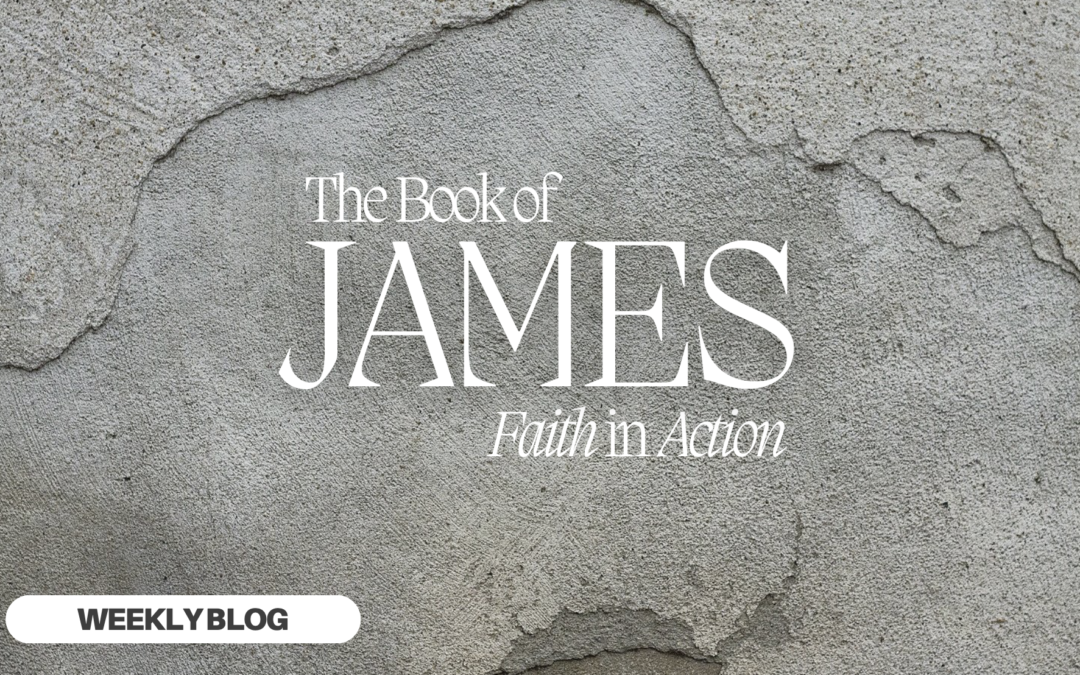JAMES—Week 10
James 5:13-20
We have reached the end of our study of James. As we’ve seen, James doesn’t pull any punches as he challenges our culture’s belief that faith should be a personal, private matter. For James, our faith should be just the opposite—our faith should be living and active in every aspect of our lives and on full display in both word and deed. As James concludes his letter, this theme continues on as he addresses prayer. James emphasizes the importance of active prayer: prayer that is more than words and platitudes and that actively engages in the needs of others. While there is much that we could address in these last few verses, I would like us to focus on verse 16, where James instructs believers to “confess your sins to one another and pray for one another, that you may be healed.”
When we consider our desires and longings, be they sinful or benign, what do they tell us about our relationships with God and our faith community? Do we have genuine community—community where we have the freedom and space to analyze and confront these longings head-on, or are we forced to hide our true selves for fear of being judged or ostracized? Certainly, sinful desires shouldn’t be coddled or lauded. They should not be dismissed as merely part of who we are. But in our crusade against sin, we must be careful not to create secret societies within our midst. When we deny the existence of sinful urges in our own lives and pass harsh judgment on the sin of others, we create false communities where true vulnerability and confrontation of sin are impossible because their existence is denied. If we are not careful, in our pharisaical zeal for purity we may unwittingly create the perfect Petri dish for sin to thrive.
It is my opinion that in these last few verses of James’ letter to believers, we really see the heart of James. All of the wisdom James has imparted has been in support of James’ love for the Church and his belief that the Church should be a loving, supportive community where we can truly be ourselves. In this loving community the sinner should be welcomed. He should be free to reveal all the ugliness at work in his soul, for it is in the community of broken sinners that hope and healing are to be found. Do we have more right than our Creator and Redeemer? If God looks on the repentant sinner and sees nothing but the righteousness of Jesus, should we do any less? Again, this doesn’t mean that we condone sin or fail to show loving discipline to the unrepentant. But should our faith community not be one of the primary means by which the Holy Spirit does his work of sanctification? What would it look like if each and every member of our community felt the freedom to be completely honest about his or her struggles? What if every person understood that they would be both loved unconditionally and also challenged and held accountable?
As we wrap up our study of the Book of James, let us heed God’s call to a community unlike any other—a community where we love and serve each other unconditionally. It is a call that is no doubt risky and challenging, but Jesus is always worth the risk.
Questions:
- When you think of the phrase “confess your sins to one another”, what images come to mind? Are they negative or positive?
- How is James’ heart revealed in these final verses? What seems to be his priority as he wraps up his epistle?
- How do we promote both a commitment to righteous living and an openness to express struggles with sin and doubt? How might a church look morally pure and yet create an environment where sin thrives?
- As we wrap up our study, what has impacted you the most through this study? How has your view of active faith changed? What tangible steps have you taken to implement what you’ve learned in your daily life?






